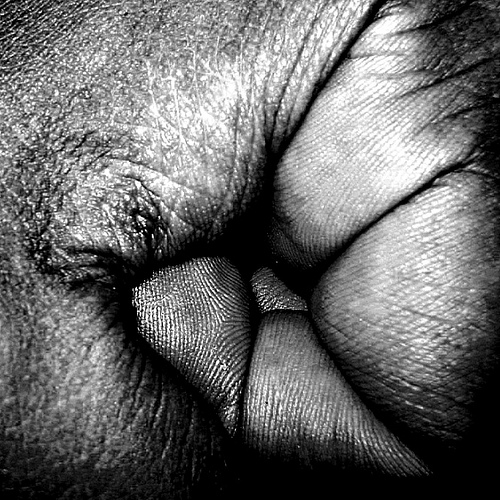“I should like to assure you, my Islamic friends, that under the American Constitution, under American tradition, and in American hearts, this Center, this place of worship, is just as welcome as could be a similar edifice of any other religion. Indeed, America would fight with her whole strength for your right to have here your own church and worship according to your own conscience. This concept is indeed a part of America, and without that concept we would be something else than what we are.” -President Dwight Eisenhower; Remarks at Ceremonies Opening the Islamic Center. June 28, 1957
A common theme in the Bush Administration’s “War on Terror” was bringing freedom to oppressed peoples. The Bush Administration advertised the invasions of Iraq and Afghanistan to the American people as a means of bringing freedom to these two predominantly Muslim societies. As we continue to fight two wars and spend trillions of our tax dollars for the freedom of Muslims overseas, can we not afford the same freedoms to Muslim-Americans at home? While an extreme minority of Muslims has been known to commit acts of terror against Western targets, most of the world’s 1.5 billion Muslims work, worship, and live in peace – especially in America. Americans of faith (and those without) have a responsibility to accept Muslim-Americans as equals in citizenship and dignity.
Since the horrific events of 9/11, Muslim-Americans have been placed under immense scrutiny by their neighbors, politicians, and law enforcement officials. Suspicion and fear should not be factored into how we deal with fellow citizens. The First Amendment protects the religious practice of all Americans. Unfortunately, in recent months there have been calls from the Tea Party and others to apply extraordinary conditions for Muslims attempting to build new Islamic centers and mosques and questioning the ability of Muslims to be patriotic citizens like Christians, Jews and others. At mosques in California and Maine vandals have put severed pig heads at the entrances of mosques (the pig is considered unclean in Islam, as in Judaism) and in Tennessee arsonists set fire to the construction site of a new mosque being built there. And of course there is the national upheaval over the proposed Park51 Islamic Center in lower Manhattan. Radical opponents of toleration of Muslim-Americans accuse Muslims of supporting terrorism, seeking to undermine Christianity and to covert all of America to Islam. Many of these activists see President Barack Obama as part of a supposed Muslim conspiracy to destroy America – and use the fact that his father was a Muslim to attack his legitimacy, as if Islam itself is a stain on American identity. These double standards and anti-Muslim sentiments damage America by undermining its place as a safe haven of religious freedom.

Despite religious liberty being one of the tenets of the Constitution, American history is littered with stories of both religious tolerance and intolerance. Modern opponents of religious liberty for American Muslims seem to ignore the good example our Founders. In 1763, while the American colonies were still under the auspices of the British crown, a synagogue was established as a place of worship for the Jewish colonists of Newport, Rhode Island. The synagogue was named Touro Synagogue and still stands today in the same location as it has for almost 250 years. The Touro Synogogue would not only become a place of worship for the Jewish people, but also a community center for the people of Newport for years to come. George Washington came to the Touro Synagogue in 1781 to meet with his French counterparts to plan the last battles of the Revolutionary War. After the war the synagogue was used as a meeting place for Rhode Island’s General Assembly, State Supreme Court and the town of Newport, making it an important place in Rhode Island’s history.
Rhode Island itself has a history of religious tolerance going back to the colony’s founding. Roger Williams, the founder of Rhode Island, had fled Massachusetts Bay Colony because of the Puritans’ religious intolerance to his own and others’ faith and beliefs. Williams founded Rhode Island as a place for those seeking to practice their beliefs without fearing retribution from others. This concept would be carried on after the colonial era as an American ideal and would be added into our Constitution as the First Amendment. Other nations around the world would follow our lead and instill this concept into their own laws and practices.
There are many other stories of repression that often go untold in our national narrative. Northeastern University Professor Steven Vallas, Chairperson of the Sociology and Anthropology Department, pointed to Irish and Italian Catholics experiences of strong discrimination in the mid-to-late nineteenth century. These groups were feared for three things, “rum, Romanism, and rebellion” by their Anglo-Saxon counterparts, said Vallas. Vallas also acknowledged that Irish Catholics were not allowed to build their own churches in Boston until the 1870s, and that nativism has existed throughout our history. “It’s not really a linear process, it simply takes time and [it] depends on the timing, condition and economic status of the country,” said Vallas.
Today, after several waves of immigration to the United States from various parts of the world, the debate over the right to build religious institutions wherever one may see fit is under attack. Park51, a proposed Muslim community center that would house a swimming pool, culinary school and mosque in an abandoned Burlington Coat Factory building, has left Muslim Americans to defend their rights and their place in American society. Park51, formerly known as Cordoba House, and better known as the “Ground Zero Mosque,” became a hot political issue that dominated the nation’s headlines through the latter half of the summer. With the midterm elections, politicians from the right and left used the issue to sway voters by coming out against the proposed community center. “It just reeks of the politics of fear,” said Vallas on the issue.
Despite all the efforts made since 9/11 by the Muslim-American community to promote tolerance of Islam, it faces an uphill struggle before they can be fully accepted as a part of the American mainstream. The portrayals of Islam and Muslims in popular media often fail to help Americans understand what Islam is and who their Muslim compatriots are. More often than not, the stereotypical image the average American receives of Islam is one of violence and hate for non-Muslims, discrimination against women and hostility toward science which all go against the basic tenets of American-Muslims’ faith. One of the key tenets of Islam is giving zakat or alms; news reports tend to securitize this practice by focusing intently on instances of terrorists using Muslim charities to finance their activities. While figures in a CNN/Opinion Research survey suggests that approximately 70% of Americans are against the “Ground Zero Mosque,” one must question the type of information people have been fed or led to believe about the issue. One rarely sees American Muslims represented in public debates on the question – an imam here, an activist there, counterterrorism experts and pundits talking about rather than to Muslims. Stereotypical broadcasts in the media have hurt American Muslims in their efforts to grow as citizens of America. Many Muslim-Americans are stunned at the treatment they receive in public. According to a 2007 Pew survey, the approximately 6 million Muslim-Americans work hard, are well educated, and believe their communities are excellent places to live. Although a plurality of those Muslims polled saw issues like discrimination, prejudice, “being viewed as terrorists,” and stereotyping as the most significant issues facing their community, the poll showed that American Muslims are, nevertheless, only slightly less satisfied with life in America than the general population by massive majorities, with the young being more satisfied than the old. Of those surveyed 71% agreed that they “could get ahead in America if they are willing to work hard.” This survey helps to prove that Muslim-Americans, like others, are dedicated members of American society and adhere to many of the same values as the mainstream – “Middle class and mostly mainstream,” read the report’s subtitle. Despite their American ideals, Muslim-Americans have had trouble building their houses of worship and community centers all across America with the “Ground Zero Mosque” bringing about a whirlwind of politicized controversy. Angry activist groups have attempted to intimidate Muslims through protests and by using the instruments of local government to restrict mosque construction. There is ample room for pessimism about the possibility of greater acceptance for Muslim-Americans. But there is also an imperative for Americans to act proactively to build a more positive atmosphere for Muslims in America.
Professor Jocelyn Cesari, director of the Islam in the West Program at Harvard University, had much to say about what Muslims should do to be accepted in Western societies. Cesari listed past Muslim-American figures such as Mohammad Ali and Malcolm X as having brought Islam into the public sphere, but said that today’s average American needs another larger-than-life persona to help Islam assimilate into the mainstream and make Muslims more relatable. She cited pop culture and the media as areas that American Muslims needed to be involved in to rid themselves of the “terrorist” and “extremist” labels. Cesari also pointed to the economic downturn as a reason for the recent upswing in anti-Muslim sentiments, a well-documented phenomenon in other waves of anti-minority sentiment. Muslims need to work to engage other Americans more directly in the media and everyday life in order to humanize wider society’s perception of Muslims. “What Muslims need is a Cosby Show of their own,” recommended Cesari. Polls have shown that Americans who have met Muslims, on average, a more favorable opinion of Muslim-Americans than those that have never interacted with Muslims.
Cesari has been studying Muslim minorities living in Western nations while at Harvard and has published several books on Islam and Muslims in today’s modern era. She believes that conditions were tolerable for Muslims in America a while after 9/11 because of the grassroots efforts of local Muslim communities to educate others about their religion. She now believes, however, that something needs to be done by Muslim-Americans on a national stage to quell the anger directed at them. “There’s still a lot of work to do to build an unapologetic discourse on who’s responsible for terrorist attacks,” she said. Muslims, both religious leaders and laypeople, need to continue to work creatively and aggressively to separate themselves from any association with terrorism, extremism or ideologically driven violence. While Muslim-Americans are aware of their position, many other Americans do not get to hear from them and rely on talking heads for information about Islam. An American Muslim has to ask him or herself: Do I want Glenn Beck to tell my neighbors about Islam or should I do it myself?
This fall, NPR columnist Juan Williams appeared on Fox News and stated that whenever he boarded a plane and saw an individual wearing Muslim “garb” he got worried and nervous. Williams was fired for his comments, and however offensive his comments may have been, they do reflect how many Americans feel about Muslim-Americans – for now. This shows that much work still needs to be done on both sides to promote efforts of understanding and tolerance. Park51 can become the symbol of a new America, an America that accepts all its citizens and treats them equally under the rule of law. New York’s Mayor Michael Bloomberg’s has commented that although we may not always agree with our neighbors Americans have an obligation to live with our neighbors, “in mutual respect and tolerance.” In today’s political climate, Muslim-Americans cannot afford to be passive in building a community committed to religious tolerance. They must struggle to be recognized as Americans on equal footing. Their conviction must be, as one Boston-area Muslim-American leader said recently: “I am not a Muslim living in America. I am an American who believes in Islam.”



